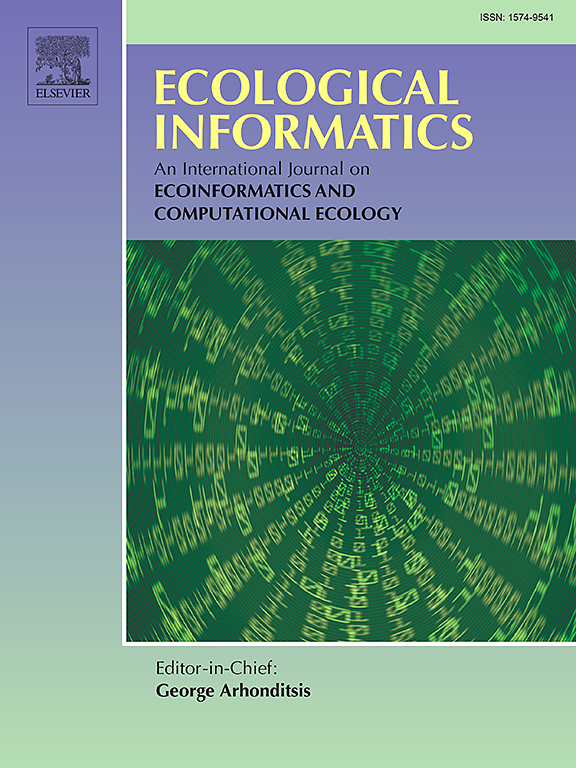AgriDeep-net: An advanced deep feature fusion-based technique for enhanced fine-grain image analytics in precision agriculture
IF 5.8
2区 环境科学与生态学
Q1 ECOLOGY
引用次数: 0
Abstract
With the vast diversity and rapidly evolving nature of agricultural landscapes, the need for cutting-edge technological solutions has become increasingly apparent. Addressing the complex challenges of fine-grained agricultural image classification, AgriDeep-Net is introduced as an innovative multi-model deep-learning framework, strategically incorporating advanced techniques to navigate complexities in the field. This precision-driven methodology distinguishes AgriDeep-Net, offering a strategic approach to extract salient and discriminative features from diverse deep-learning models involving highly similar agricultural images marked by low inter-class visual discrimination. Each model is characterized by unique architectural configurations, enabling strategic feature fusion that empowers AgriDeep-Net to capture nuanced semantic information within multi-class agricultural images. The framework adeptly manages the hurdles posed by uneven data distribution, intra-class diversity, and the demands of multi-class classification. Rigorous experimentation underscores AgriDeep-Net's exceptional performance, achieving a testing accuracy of 93.29 % for the ACHENY dataset and an even more impressive 98.44 % for the Indian Basmati seeds dataset. Benchmarking against state-of-the-art deep neural networks, AgriDeep-Net proves its efficacy across diverse datasets collected under real-world and controlled conditions. This framework stands out as a beacon of efficiency and accuracy, eliminating the need for extensive image pre-processing operations and showcasing its potential to empower farmers with precision tools for optimizing crop yields, resource allocation, and swift responses to emerging agricultural challenges.
AgriDeep-net:一种先进的基于深度特征融合的技术,用于增强精准农业中的细粒度图像分析
随着农业景观的巨大多样性和迅速变化的性质,对尖端技术解决方案的需求日益明显。为了解决细粒度农业图像分类的复杂挑战,AgriDeep-Net作为一种创新的多模型深度学习框架被引入,它战略性地结合了先进的技术来导航该领域的复杂性。这种精度驱动的方法区分了AgriDeep-Net,提供了一种从不同深度学习模型中提取显著特征和区别特征的策略方法,这些模型涉及高度相似的农业图像,这些图像以低类别间视觉歧视为标志。每个模型都具有独特的架构配置,实现了战略性特征融合,使AgriDeep-Net能够在多类农业图像中捕获细微的语义信息。该框架巧妙地处理了数据分布不均、类内多样性和多类分类需求所带来的障碍。严格的实验强调了AgriDeep-Net的卓越性能,对ACHENY数据集的测试准确率达到了93.29%,对印度巴斯玛蒂种子数据集的测试准确率达到了令人印象深刻的98.44%。通过对最先进的深度神经网络进行基准测试,AgriDeep-Net证明了其在真实世界和受控条件下收集的各种数据集的有效性。该框架作为效率和准确性的灯塔脱颖而出,消除了对大量图像预处理操作的需要,并展示了其为农民提供精确工具的潜力,以优化作物产量、资源分配和快速应对新出现的农业挑战。
本文章由计算机程序翻译,如有差异,请以英文原文为准。
求助全文
约1分钟内获得全文
求助全文
来源期刊

Ecological Informatics
环境科学-生态学
CiteScore
8.30
自引率
11.80%
发文量
346
审稿时长
46 days
期刊介绍:
The journal Ecological Informatics is devoted to the publication of high quality, peer-reviewed articles on all aspects of computational ecology, data science and biogeography. The scope of the journal takes into account the data-intensive nature of ecology, the growing capacity of information technology to access, harness and leverage complex data as well as the critical need for informing sustainable management in view of global environmental and climate change.
The nature of the journal is interdisciplinary at the crossover between ecology and informatics. It focuses on novel concepts and techniques for image- and genome-based monitoring and interpretation, sensor- and multimedia-based data acquisition, internet-based data archiving and sharing, data assimilation, modelling and prediction of ecological data.
 求助内容:
求助内容: 应助结果提醒方式:
应助结果提醒方式:


